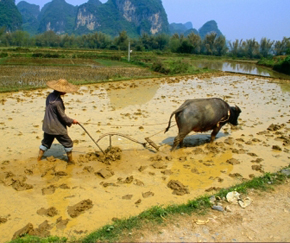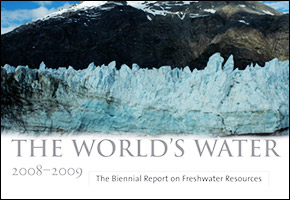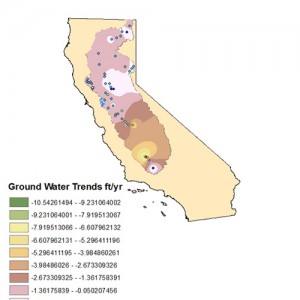China’s Poor Farmers Hit Hardest by Climate Change

Drier summers, more frequent droughts force some farmers off their land and threaten the nation’s harvests.
Farmers on the edge of poverty in China’s rural provinces face a bleak future in the wake of warmer temperatures, more frequent droughts and infrequent rainfall. The changing climate is forcing many harvesters into poverty or keeping them from climbing out, while convincing others to leave their farms for the cities.
The fallout from global warming is hitting China’s farming population of 750 million particularly hard, Reuters reported Monday. Using farming techniques that date back generations, including wooden plows and donkeys, rural farmers are ill equipped to cope with changing weather patterns and growing seasons.
Declan Conway, a University of East Anglia researcher who has studied climate change’s affect on China’s farmers, told Reuters that people in remote communities in China’s poorer regions are particularly exposed to climate hazards.
“Those people are already quite vulnerable, and it’s quite likely that with an increase in the frequency of extreme weather events, they’re going to feel it more in the future,” Conway said.
A recent study of vulnerable regions of China sponsored by Oxfam Hong Kong and Greenpeace found that the changing climate is making it harder for people to climb out of poverty, despite government programs that raise people’s incomes and make water more available.
The report notes that climate change has already become one of the main causes for poverty as well as a return to poverty for people in China — 95 percent of those who live in absolute poverty in China live in ecologically fragile zones, which endure climate change’s worst effects. The report warned that climate change will cripple the country’s efforts to reduce poverty without immediate action.
“There’s an association between these changes and reversion to poverty,” Lin Erda, one of China’s top experts on climate change and agriculture who co-authored the report, told Reuters. “There are uncertainties about how global warming will affect agriculture, but the risks are big, and they will first hurt the farmers in arid and semi-arid vulnerable regions.”
Unless the country encourages adaptation through improved irrigation and hardier crops, average productivity of major grains per acre could fall between 13 and 24 percent in coming decades, Lin warned.
Sources: Reuters, Greenpeace
Read more from the study, “Climate Change and Poverty: A Case Study of China” (PDF).







Leave a Reply
Want to join the discussion?Feel free to contribute!